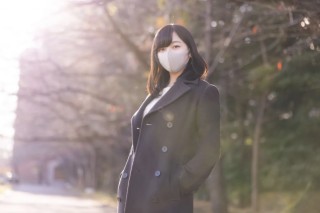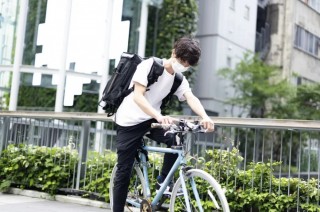Loading
Search
▼ Foreign Tourists React To Mask-Wearing In Japan, And Japanese People React To Foreign Non-Maskers
- Category:Other
How true does the old adage “When in Rome, do as the Romans do” stand up today in modern society? That’s something that’s currently being put to the test in Japan, as the first influx of new tourists enter from abroad after two years of being banned from the country.
Over here, people in Japan do things differently to other parts of the world, and that’s part of the huge appeal of coming here. However, when it comes to mask-wearing, a lot of foreigners don’t want any part of it, according to news reports being broadcast around the country.
This news report showed interviews with foreign tourists at Asakusa’s famous Sensoji Temple in Tokyo.
In the report above, foreigners expressed their views at the high rate of mask-wearing by people in Japan, even outdoors.
While the first couple expressed respect for the practice, wearing masks themselves and saying they didn’t mind in the slightest, the second person in the clip expressed surprise that it wasn’t just elderly people but children as well who were covering up, saying it was their first time seeing anything like it. As for the third person, they said mask-wearing was meaningless and takes one back to a time already forgotten.
In recent weeks, Japanese Prime Minister Fumio Kishida has been telling the public that mask-wearing outdoors is not required, in principle. It’s the word “in principle” that’s causing confusion with so many, who’ve long been told to wear masks in “three Cs” environments: Closed spaces with poor ventilation; Crowded places with many people nearby; Close-contact settings such as close-range.
Minster of Health, Labour, and Welfare Katsunobu Kato spoke about mask-wearing at a press conference last week, saying that while the government is attempting to get its messaging out about having dropped the recommendation to wear masks outside, shifting the public’s opinion about mask-wearing is a hurdle that’s proving harder to budge.
That’s likely because the government’s rule is at odds with societal rules — people in Japan have long been taught to wear masks as a way of protecting oneself and others from the spread of illness, and it’s a practice that’s become even more entrenched in society during the pandemic.
Walk down any street in Japan today, and you’ll likely see people of all ages, from the elderly right down to young elementary school students walking to school without adult supervision, all wearing masks over their mouths and noses.
▼ Oh, and people running, cycling and doing physical exercise outside? You’ll see many of them masked too.
It’s not necessarily because people in Japan like wearing masks — in fact many of them find them as uncomfortable to wear as the next person — but it’s something you do as part of the culture, like taking your shoes off before entering a house, not sticking your chopsticks into a bowl of rice, and washing your body before stepping into a communal bath.
Wearing a mask when there’s the possibility of infection about is a sign of respect and consideration for others that’s so tied up with customary etiquette in Japan that people will do as they do, no matter what the government says about it.
Add in the fact that the current “no masks outdoors in principle” requirement is so vague that there’s a lot mixed messaging, especially at outdoor events where people don’t have to wear masks as long as they’re not talking, but have to wear them when shopping at stalls or having conversations, and it becomes easier to just leave them on rather than risk breaking the rules.
Even in some office environments in Japan, people no longer have to wear masks, but it’s only as long as they’re not talking. And that’s the underlying principle of the “in principle” requirement.
When people don’t wear masks in everyday outdoor environments, they’re likely walking on their own down a street, to and from the shops or the station, with their mouths closed. If they are talking, it’s done discreetly and quietly, with consideration given to others around them.
Do overseas tourists give the same consideration to others while walking past people in crowded areas?
It would be nice to think that they do, and they will, and maybe that will help to allay the concerns of locals who are fearful of seeing unmasked people in their midst.
As one Japanese woman in the news report above commented, she was half scared and half jealous of the way foreigners were seemingly throwing caution to the wind by not masking up.
Which brings us back to the old saying, “When in Rome do as the Romans do.” Here in Japan, people are still wearing masks, even outdoors, and despite the government telling them they don’t have to.
Mask-wearing is so engrained in the culture, especially now when coronavirus cases peaked at record-high levels in August and is on an upward tick again, that anyone who doesn’t wear a mask stands out and their behavior is scrutinised.
Mask-wearing outdoors, or even indoors, may be a thing of the past in your home country, but here in Japan it’s still a very present thing. So when in Japan, will you do as the Japanese do?
The choice is ultimately up to you, but if you really do want to express your love for Japan and its people, it’s best shown with respectful actions rather than loudly spoken words.
- October 20, 2022
- Comment (0)
- Trackback(0)



